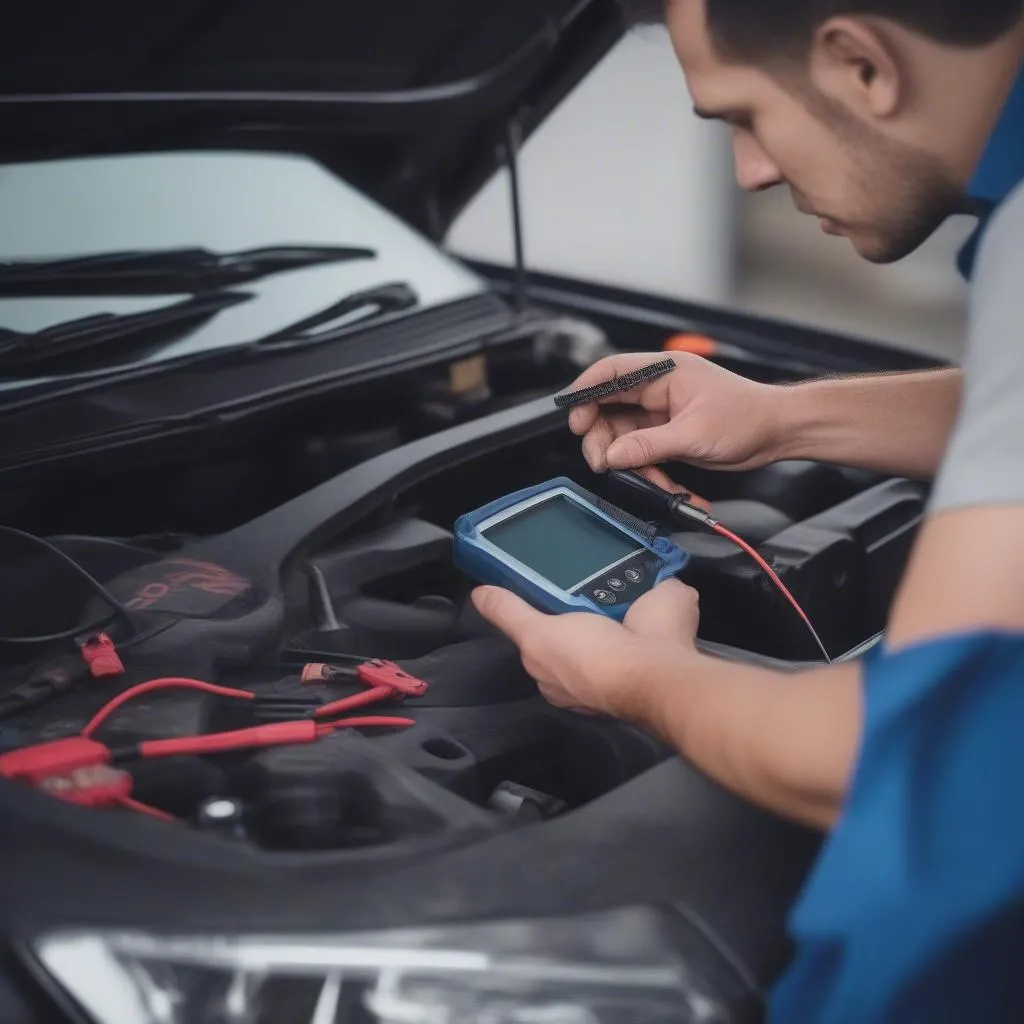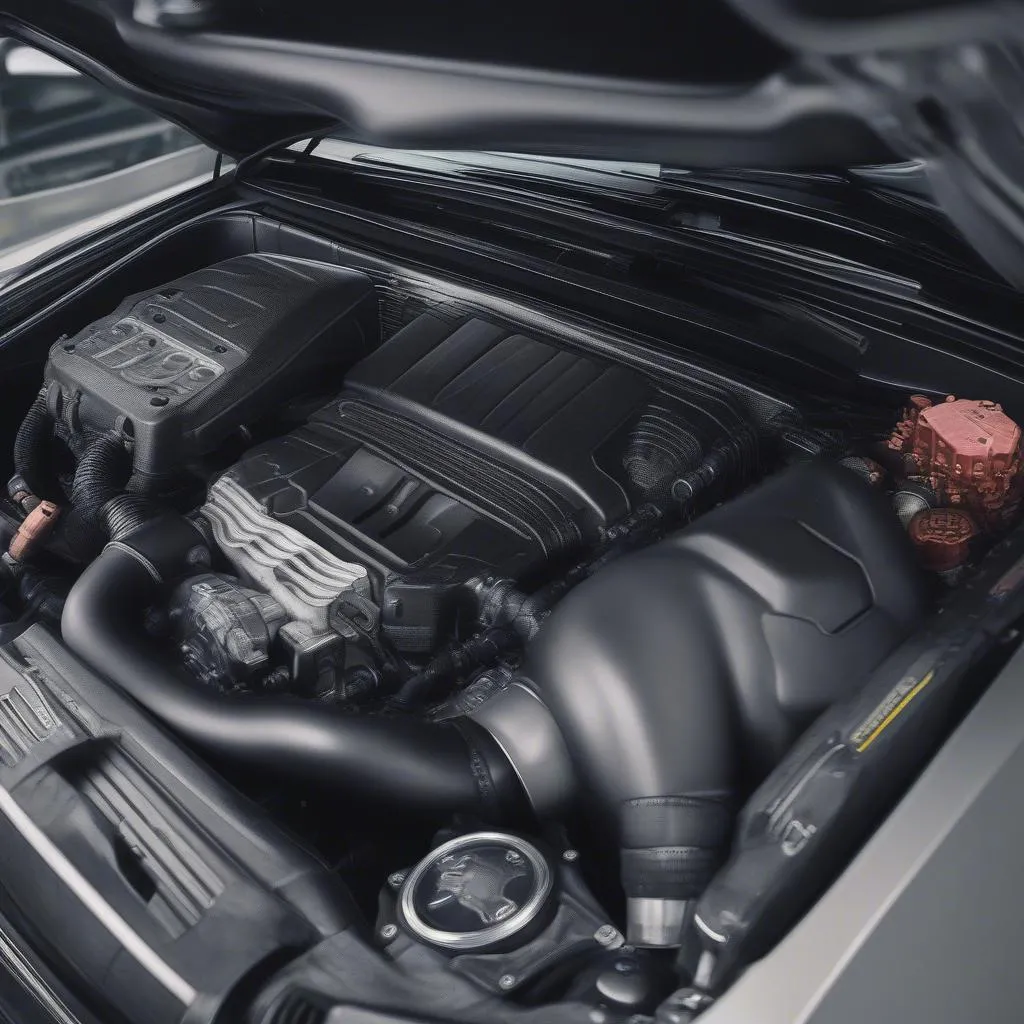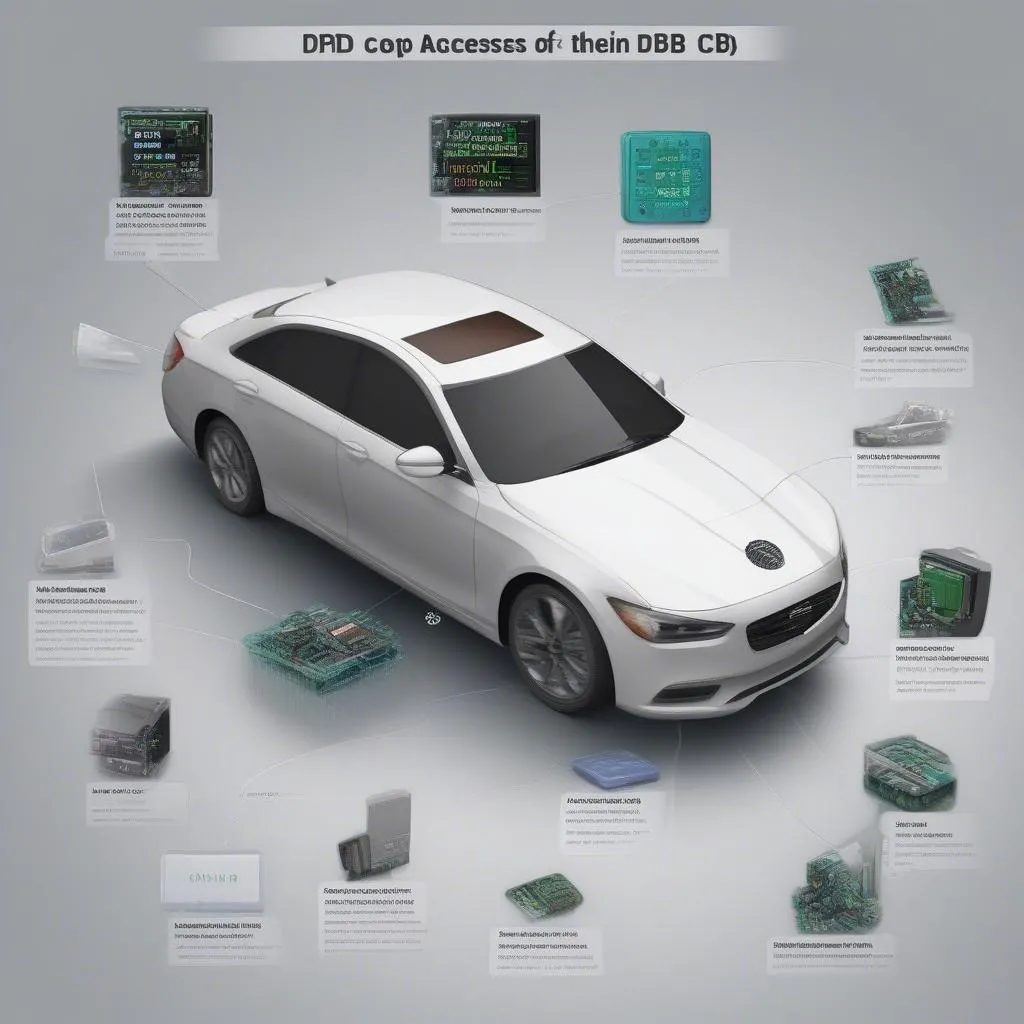Imagine you’re a mechanic, working on a complex European car with an engine light flashing. You’ve got your diagnostic tools, but the standard OBD-II protocols just aren’t cutting it. You need to delve deeper, to unlock the car’s hidden secrets, and that’s where Deep Obd comes in.
What is Deep Obd?
Deep OBD, also known as advanced diagnostics or deep scan, goes beyond the standard OBD-II protocol, offering access to more data and functionalities within the car’s electronic control units (ECUs). Think of it like unlocking a hidden menu on your phone, revealing a whole new world of features and information.
Importance of Deep Obd
For mechanics, Deep OBD is a game-changer. It allows them to:
- Identify specific faults: Deep OBD protocols can access detailed fault codes and logs, providing more accurate diagnoses.
- Program and configure ECUs: You can adjust parameters like engine timing, transmission settings, and even instrument panel configurations.
- Perform advanced diagnostics: Access to real-time data streams, sensor readings, and other information provides deeper insights into the car’s health.
- Unlock hidden features: Some cars have secret features that are only accessible through Deep OBD, such as performance tweaks or hidden display options.
Deep Obd Explained: Understanding the Basics
Deep OBD utilizes various protocols and methods that go beyond the standard OBD-II. These include:
- Proprietary protocols: Some manufacturers, especially European car brands like BMW, Mercedes, and Audi, have developed their own proprietary protocols that aren’t supported by standard OBD-II tools.
- Enhanced communication: Deep OBD tools can utilize faster communication speeds, allowing for faster data transfer and analysis.
- Advanced coding: Deep OBD tools can modify and reprogram ECU software, providing more control over the car’s settings.
The Benefits of Deep Obd
Deep OBD offers numerous advantages for both mechanics and car owners:
- More precise diagnostics: Deep OBD provides a more detailed understanding of the car’s issues, leading to more effective repairs.
- Enhanced customization: You can tailor the car’s settings to your preferences, such as adjusting throttle response or fuel economy.
- Unlocking potential: Deep OBD can unlock hidden features that were previously inaccessible, adding value and excitement to the car ownership experience.
Deep Obd in Action: Real-World Applications
Deep OBD is becoming increasingly popular in the automotive world, with applications ranging from professional repair shops to DIY enthusiasts. Here are some real-world examples:
- A mechanic in California used Deep OBD to diagnose an intermittent fault in a BMW’s fuel system. Standard OBD-II tools couldn’t pinpoint the issue, but Deep OBD revealed a faulty fuel pressure sensor. The problem was quickly fixed, saving the customer time and money.
- A car enthusiast in Germany used Deep OBD to reprogram his Audi’s engine software, unlocking better performance and fuel efficiency. He was able to customize the engine’s map, resulting in a more spirited driving experience.
- A DIY enthusiast in New York used Deep OBD to activate his car’s blind spot monitoring system. The feature was originally disabled, but Deep OBD allowed him to enable it, enhancing safety and convenience.
Common Deep Obd Queries: Addressing Your Questions
Many people have questions about Deep OBD, such as:
Is Deep OBD legal?
Yes, Deep OBD is legal as long as it’s used ethically and responsibly. Modifying a car’s software should be done with caution and in accordance with local regulations.
What are the risks associated with Deep OBD?
As with any advanced technology, there are potential risks associated with Deep OBD:
- Software errors: Incorrect programming can lead to unintended malfunctions or even damage to the car.
- Security vulnerabilities: There’s a risk of unauthorized access to the car’s system, potentially leading to data breaches or even vehicle theft.
- Warranty voiding: Some manufacturers may void the warranty if the car’s software is modified.
Do I need a special tool for Deep OBD?
Yes, you’ll need a specialized diagnostic tool that supports Deep OBD protocols. There are various options available, from handheld scanners to software-based tools.
What are some of the best Deep OBD tools available?
There are several popular Deep OBD tools on the market, including:
- Dealer Scanner: A comprehensive tool that supports a wide range of European car brands and offers advanced diagnostics capabilities.
- OBD Eleven: A powerful software-based tool that provides extensive functionality for coding and customizing European cars.
- Carista: A user-friendly app that allows you to diagnose, reprogram, and unlock features in your car.
Deep Obd: The Future of Automotive Diagnostics
Deep OBD is revolutionizing the automotive world, providing mechanics and car owners with more control and insight into their vehicles. As technology advances, we can expect even more sophisticated tools and functionalities to emerge, pushing the boundaries of what’s possible with automotive diagnostics.
 Deep OBD Tool
Deep OBD Tool
 European Car
European Car
Conclusion
Deep OBD is a powerful tool for anyone who wants to understand and control their car’s electronic systems. Whether you’re a professional mechanic or a DIY enthusiast, Deep OBD can unlock a world of possibilities, providing you with more information, customization options, and overall control over your vehicle.
Do you have any other questions about Deep OBD? Leave a comment below, and we’ll be happy to help!
For expert assistance with Deep OBD diagnostics and coding, contact our team at +84767531508. We have experienced professionals available 24/7 to support your automotive needs.
Want to explore more automotive topics? Check out these related articles on our website:
- IBUS: The Deep OBD Connection
- Deep OBD Adapter: Unlocking Advanced Diagnostics
- Deep OBD for BMW: Advanced Features and Customization
 Deep OBD Explained
Deep OBD Explained